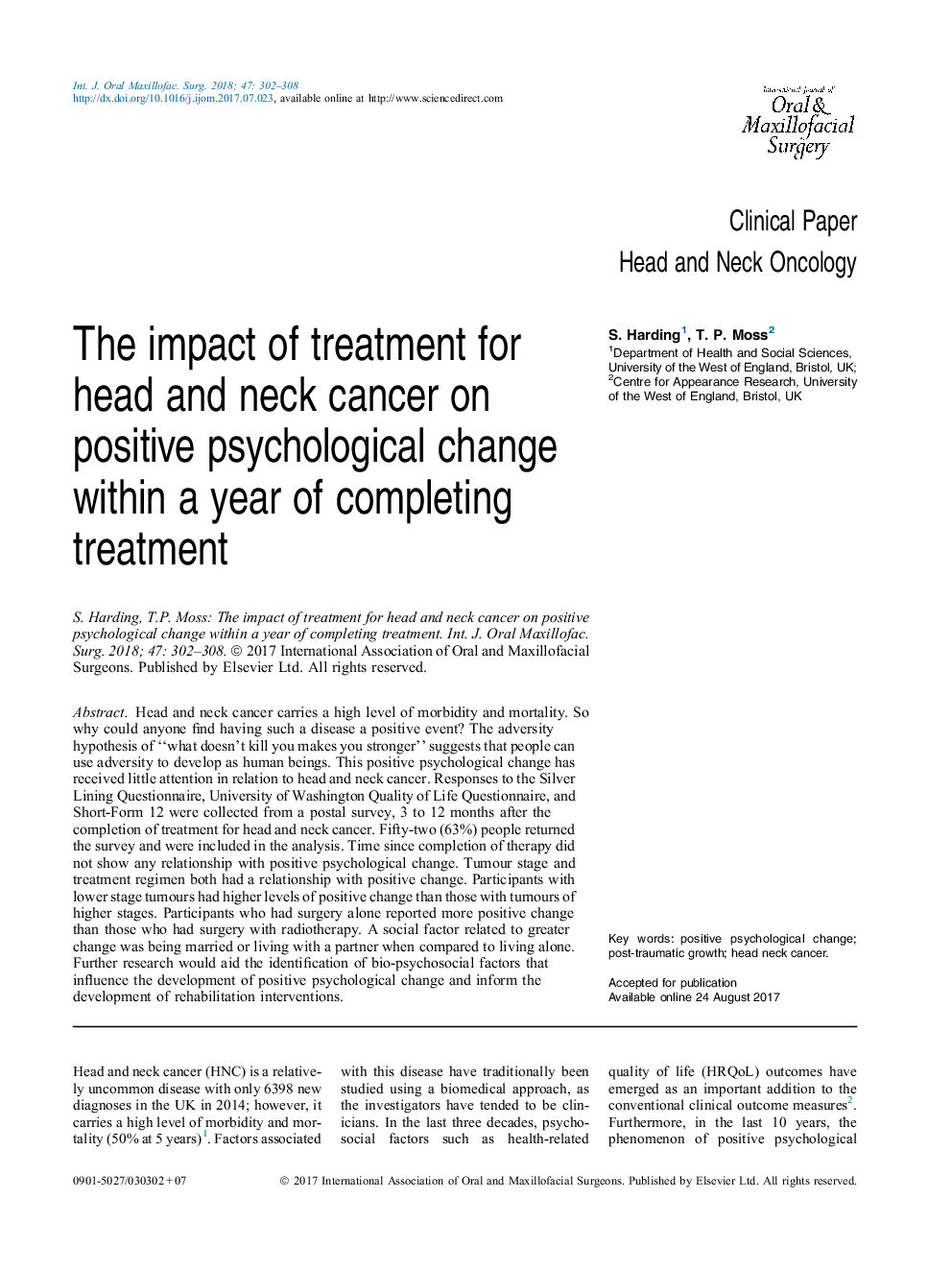| Article ID | Journal | Published Year | Pages | File Type |
|---|---|---|---|---|
| 8697859 | International Journal of Oral and Maxillofacial Surgery | 2018 | 7 Pages |
Abstract
Head and neck cancer carries a high level of morbidity and mortality. So why could anyone find having such a disease a positive event? The adversity hypothesis of “what doesn't kill you makes you stronger” suggests that people can use adversity to develop as human beings. This positive psychological change has received little attention in relation to head and neck cancer. Responses to the Silver Lining Questionnaire, University of Washington Quality of Life Questionnaire, and Short-Form 12 were collected from a postal survey, 3 to 12 months after the completion of treatment for head and neck cancer. Fifty-two (63%) people returned the survey and were included in the analysis. Time since completion of therapy did not show any relationship with positive psychological change. Tumour stage and treatment regimen both had a relationship with positive change. Participants with lower stage tumours had higher levels of positive change than those with tumours of higher stages. Participants who had surgery alone reported more positive change than those who had surgery with radiotherapy. A social factor related to greater change was being married or living with a partner when compared to living alone. Further research would aid the identification of bio-psychosocial factors that influence the development of positive psychological change and inform the development of rehabilitation interventions.
Related Topics
Health Sciences
Medicine and Dentistry
Dentistry, Oral Surgery and Medicine
Authors
S. Harding, T.P. Moss,
